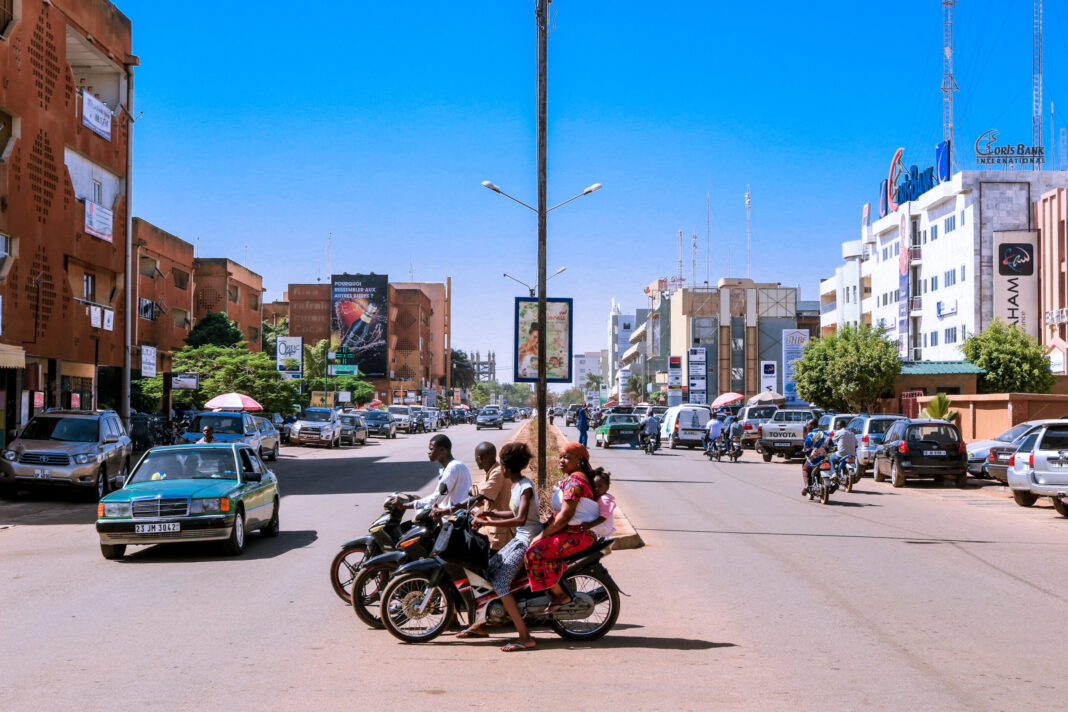By Marta Cavallaro
Paris’ withdrawal from Burkina Faso became official when the French Foreign Ministry stated on 22 January that it had received a formal request from the Burkinabé government to terminate the agreement governing Paris’ presence in the country. In public statements by its Ministry, France pledged to respect the terms of the agreement signed between the two countries in 2018 by withdrawing its troops within a month.
The request by the Burkinabe authorities does not come as a surprise. It is only the latest in a long series: in December, the French Foreign Ministry had already received a letter in which Ouagadougou asked Paris to replace its ambassador, believing that he was no longer a reliable interlocutor. At the same time, the Burkinabé authorities had ordered the expulsion of Barbara Manzi, UN envoy, calling her ‘persona non grata’ and accusing her of having conveyed an excessively negative picture of security standards in the country.
Beyond the formal demands, civil society’s impatience with Western – and especially French – actors in the region was there for all to see in recent months. Anti-French demonstrations accompanied the coup d’état – the second in a year – with which Ibrahim Traoré’s military junta seized power at the end of September last year. Since then, the protests have not stopped. In October, protesters attacked the French cultural centre in the capital Ouagadougou. In November they also targeted the French embassy and military base in the country. The demonstrations were repeated a few days before the official announcement of the French withdrawal.
Fuelling popular discontent against Paris is a general perception of the failure of the French mission in the region, which was supposed to support local forces in the fight against terrorism. For years Burkina Faso has been struggling against the jihadist insurgency that has been active in the Sahel region for about a decade. The country is prey to the violence of armed cells linked to the Isis-affiliated Islamic State of the Greater Sahara (Isgs) and the Al Qaeda-affiliated Jama’at Nusrat al-Islam wal-Muslimin (Jnim). In June last year, Mahamadou Issoufou, former president of Niger and mediator between Burkina Faso and Ecowas, had declared that Ouagadougou now controlled only 60% of the country and that the remaining territory remained outside state control. According to the latest updates from the International Crisis Group on the security situation in the country, jihadist violence remained widespread in the last months of 2022 with frequent attacks in different areas of Burkinabé territory.
According to Al Jazeera, Burkinabé military officer Ouedraogo justified the military junta’s desire to put an end to the French presence by declaring on Radio-Television du Burkina that his army and his country want from now on to be ‘the first actors in the reconquest of the territory’. Yet there are many indications that Ouagadougou is actually looking for new allies. Following in the footsteps of neighbouring Mali, Burkina Faso seems to be moving closer and closer to Vladimir Putin’s Russia, even though Traoré’s government has not yet declared any official alliance. Moscow is viewed more favourably by both the leadership and civil society than France, due in part to the absence of its colonial past in the region. Moreover, in contexts such as Mali and the Central African Republic, the troops of the Wagner Group, the private Russian mercenary company, have proven to be able to respond promptly to the demands of the local military, despite the serious human rights violations and brutal attacks on the civilian population attached.
Burkina Faso has not yet confirmed Wagner’s presence on its territory. Last 14 December, however, Ghanaian President Akufo-Addo had accused Traoré of hosting Russian mercenaries in the context of a meeting with US Secretary of State Blinken. The statements had triggered a diplomatic conflict that was only resolved by a visit of the Ghanaian Minister of National Security to Ouagadougou a few days later. Two other recent events seem to testify to the growing Russian influence in Burkinabé territory. The first is related to the permission granted by Ouagadougou to the Russian group Nordgold for the exploitation of mining sites in the Yimiougou region. The second concerns the unofficial trip of the Burkinabe Prime Minister to Moscow to discuss the possibility of concluding agreements for the exchange of military equipment. The visit prompted talk of possible secret meetings between the Prime Minister and Wagner officials.
The Malian precedent remains on everyone’s radar. After nine years of French presence in the country, Paris completed its retreat from Mali in August. Even in Bamako, the French withdrawal was marked by two coups that deteriorated diplomatic relations between the two partners, by the growing unpopularity of Paris in the eyes of civil society, and by an apparent, now official, rapprochement with Russia. In November 2022, Macron formally declared the end of Operation Barkhane, which, in its heyday, had some 5500 French troops deployed in Mali, Niger, Chad, Burkina Faso and Mauritania. About 3000 troops remained in Niger, Chad and Burkina Faso, but with a visibly reduced role. Deprived of the possibility of acting independently, the remaining French forces only have a supporting function in coordinated actions with the national armies. In the light of recent events, the 400 special forces that France had left in Burkina Faso could be transferred to Niger. Will they be able to stay there?
*On the cover Burkina Faso, Ouagadougou – August 23, 2018: Daily Life of the West African City, photo by Dave Primov on Shutterstock
























